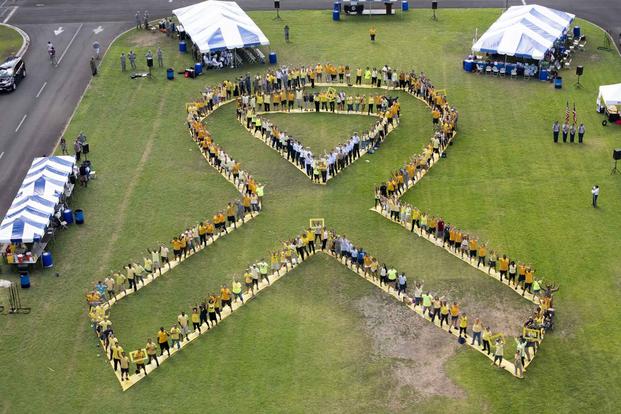The Coast Guard unveiled new measures last week to improve service members' access to mental health screening and treatment, requiring supervisors and commanders to refer personnel who request an evaluation as soon as it is practical.
In a Coast Guard-wide message Friday, Rear Adm. Dana Thomas, assistant commandant for health, safety and work-life, said that the service already provides informal support in most situations but adoption of guidance set forth in the Brandon Act, approved as part of the fiscal 2022 defense policy law, will formalize the approach.
"Each of us must remain willing and able to do all that is required to save another's life," Thomas wrote in the message, ALCOAST 124/24.
The Brandon Act, named for 21-year-old Brandon Caserta, a Navy aircrew aviation electrician's mate who died by suicide in 2018 in Norfolk, Virginia, requires commanders to respond immediately to requests from troops for mental health assessments and for the services to train members on their rights to access.
The Army, Navy, Marine Corps, Air Force and Space Force implemented Brandon Act policies by September 2023. The law did not provide a timeline for adoption but stipulated that the armed forces, which include the U.S. Coast Guard, must ensure that members can request a referral regardless of basis.
In the message, the Coast Guard, part of the Department of Homeland Security, said the law applies only to the Defense Department but that it will "implement applicable elements of [the law] to mature" its behavioral health program.
The Coast Guard's policy differs from the law in terms of the paygrade of those required to refer members. In the Coast Guard, supervisors E-6 and above must make the referral; the law says E-5s and above must do so.
"The Coast Guard requires a slightly different implementation strategy," the message states. "Each member of the CG family (from most junior to most senior, active duty, reserve, auxiliarists and civilian) are trained and expected to recognize a person in distress and take appropriate action to ensure a warm handoff occurs whenever needed."
From 2018 through June 2023, the Coast Guard lost 35 members to suicide, including a dozen in 2022 alone, according to figures provided by the service.
While suicide is a complex issue caused by many factors that include mental health, the services' prevention programs focus on resiliency and behavioral health treatment as part of an overarching strategy to reduce suicides in the ranks.
The Brandon Act required commanders to maintain privacy by not asking providers to share the results of a member's mental health assessment. However, there are some exceptions, including a service member being at risk for harm to themselves, others or the mission; needing inpatient care or substance abuse treatment; having an acute medical condition that interferes with duty; or cases where the command required a service member to get a mental health evaluation.
Patrick and Teri Caserta, Brandon Caserta's parents, created the idea of the Brandon Act and lobbied Congress and the Pentagon to implement measures that would give troops easier access to mental health treatments.
On Monday, Patrick Caserta said the Coast Guard already had much of the legislation's foundation in place, but the new announcement will add value to the service's suicide prevention efforts.
"Zero suicides obviously is their goal, but they really want to take care of their people and make a difference and make sure they're getting all the help they need. They don't want to lose somebody to mental health or a crisis of any sort," Caserta said in an interview Monday.
As part of their suicide prevention efforts, Coast Guard officials also have recently published a behavioral health playbook that provides resources and support for leadership on issues related to mental health.
The Coast Guard also has separated its mandatory suicide prevention training from sexual assault prevention requirements to ensure that service members focus on each stand-alone course, according to the service.
Related: Veteran Suicides Ticked Upward in 2021 Following 2 Years of Decline, Latest VA Statistics Show












